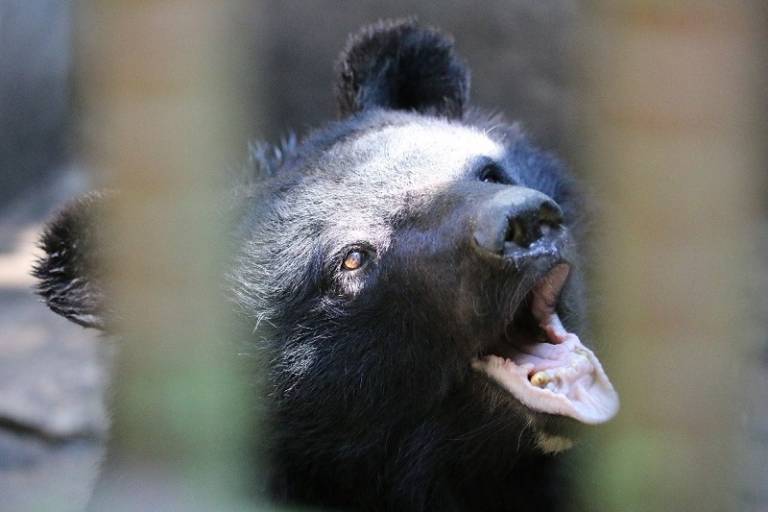UCL PhD student analysis: South Korea aims to end bear farming by 2026
22 December 2022
New article in International Bear News by UCL PhD student, Joshua Powell, details South Korea’s plans to close all bear farms by 2026 and the challenges ahead for policymakers and conservationists.

New research by UCL PhD student, Joshua Powell, published last week in International Bear News with colleague Taegyu Choi (Seoul National University and Project Moon Bear), details South Korea’s plans to close all bear farms by 2026 and rehouse the captive bears in sanctuaries.
Bear farming was established in South Korea in the early 1980s and actively encouraged by the military-led government in order to supply domestic demand for bear body parts and bile for traditional medicine, as well as meat for human consumption, and to generate income for rural communities through international trade in these products.
A variety of different types of bears were imported to stock the farms, with the predominant animals being Asiatic black bears (Ursus thibetanus), or moon bears, a species which is native to the Korean Peninsula.
The bear farms have generated increasing domestic and international criticism on account of extremely poor welfare conditions, while the potential for international trade began to shrink in the 1990s in the wake of increasing regulation following regional expansion of the Convention on International Trade in Endangered Species of Wild Fauna and Flora (CITES), which lists the Asiatic black bear among its most endangered species, known as Appendix I status.
The paper details challenges that lie ahead in implementing South Korea’s ambitious plan to end bear farming. The authors highlight that the planned public sanctuaries will only be able to hold 120 bears, far short of the 322 captive animals that remain on farms in South Korea. They also note that while two South Korean charities, Project Moon Bear and Korea Animal Rights Advocates (KARA), plan to build a private sanctuary to increase sanctuary capacity, the cost of doing so (estimated to be ₩3bn, approximately £1.85m) is a major challenge.
Joshua concluded that: “The announcement in 2022 of the joint declaration to end bear farming in South Korea is a major success after almost 30 years of policy deadlock, during which time, captive bears have languished in sometimes appalling conditions. However, there is still a long way to go before those aspirations are successfully achieved.”
During his PhD, Joshua has been a visiting research student at Seoul National University's College of Veterinary Medicine. Joshua’s PhD at UCL and ZSL’s Institute of Zoology is funded by the London NERC DTP.
Links
Contact
- Email: joshua.powell.19@ucl.ac.uk
- Social: @joshuapowell_official
Image credit: Joshua Powell
 Close
Close

